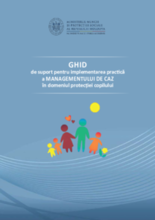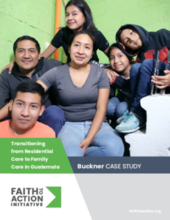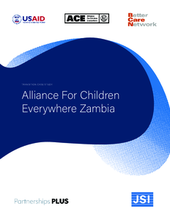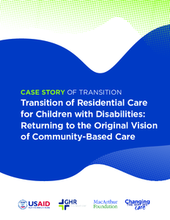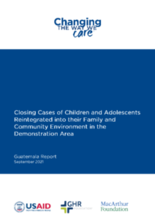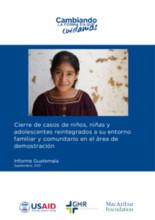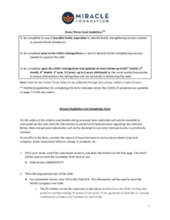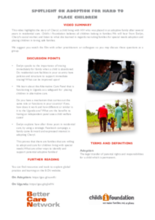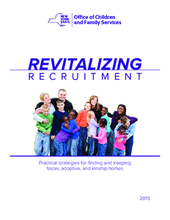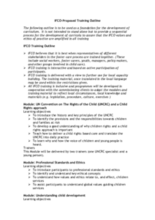The aim of this stage is to outwork care/case plans in preparation for the child leaving the residential care facility and for placement in family-based care. Care/case plans may seek to overcome causes of separation and/or impacts of separation in preparation for reunification or placement in family-based care. This stage also involves preparing young people who will transition out of care and into independent living.
In some cases, and only when it’s in the best interests of the child/ren, this stage may also involve placing children in other forms of alternative care whilst permanent reintegration planning/preparation continues. This could include foster care or kinship care, and in some exception cases, small group homes.
This stage is concerned with implementation of individual care/case plans in preparation for and up until the point of children’s placement back into their families or placement in family-based care, and the transition of youth into independent living.
Activities that might occur during this stage are specific to the care/case plans however might include:
- Improving the care setting/environment pre-reunification/placement
- Life skills training
- Vocational training
- Language and local culture acquisition (where children no longer speak their local language or dialect and have disconnected from their cultural practices)
- Job readiness training (youth)
- Protective behaviors training
- Counselling and/or other therapies
- Ongoing family re-connection and family visits
- Addressing addiction
- Family strengthening and capacity building
- Conflict resolution and positive parenting training
- Developing child and family safety plans
- Developing life books/life stories
- Creating opportunities for expression (dance, art, journaling etc.)
- Connecting children and youth with existing care leaver support services/peer networks
- Ensuring children with disabilities have assistive devices as needed and equipping homes with adaptations
- Connecting youth with community or peer mentors
- Connecting or referring children/families to government and community-based services
- Arranging for respite care services (where this is a feature of support plans)
- Preparing for school transfers
- Preparing for transfer of medical care to local clinics/hospitals
- Setting up or locating community-based services/rehabilitation for children with disabilities
- Preparing placement documentation with local authorities
- Conducting community engagement/sensitization activities and addressing any discrimination
- Preparing families and children for realistic expectations after placement/reunification
- Engaging community leaders in support and/or monitoring activities
- Preparing reintegration kits or packages (essential supplies)
- Helping families prepare the home
- Connecting to schools and preparing teachers for school reintegration
- Finding suitable accommodation for young people transitioning into independent living, including supported independent living services where required
- Connecting young people with aftercare services
- Farewell parties
- Participatory planning for the day of reunification/placement/transition with children, young people and families
- Community welcome events
- Children/youth and families have been well prepared for reunification/placement or transition to independent living
- All legal steps and procedures for reintegration/placement have been completed
- Safety and monitoring plans have been put in place for all children/youth
- Referrals to new services, including school transfers and course enrollments, have been completed to support children and their families post reunification/placement/transition
- All children/youth have been reunified, placed in more suitable alternative care settings (priority given to family-based) or have transitioned into independent living
Resources
Displaying 1 - 10 of 10
Ghidul de suport pentru implementarea practică a Managementului de caz în domeniul protecției copilului este destinat angajaților structurilor teritoriale de asistență socială.
The story of Buckner Guatemala’s transition from residential care to family care is told in this recently released Faith to Action case study. The case study details their experience through three stages of transition—learning, preparation and planning, and full transition—with transparency. It addresses common challenges for transitioning organizations, as well as the strategies Buckner took to overcome them.
Alliance for Children Everywhere (ACE) Zambia is a US-funded organization that transitioned from providing residential care in Zambia to pioneering family-based care, including foster care, and supporting other residential care service providers to transition. With important links to the Zambian government, ACE Zambia has been a key actor in supporting the development of policies, programs and guidelines that are now utilized across the country.
The Returning to Original Vision case story demonstrates reunification of children with disabilities as a critical step in transition. It also highlights the challenges of maintaining organizational vision within a process of transforming services.
The report is aimed at professionals in social work, psychology and pedagogy who work directly with children who are in the process of reintegration into a family and community environment. The document contemplates the process carried out for the closure of cases approached from a case management methodology. The report captures the experience that was had in Zacapa, Guatemala, and it reflects on the importance of reintegration through a planned process of case management and close accompaniment to families and caregivers.
El documento “Cierre de casos de niños, niñas y adolescentes reintegrados a un entorno familiar y comunitario en área de demostración” es un documento dirigido a profesionales de trabajo social, psicología y pedagogía que trabajan directamente en la atención a NNA que están en proceso de reintegración a un entorno familiar y comunitario, el documento contempla el proceso realizado para el cierre de casos abordado desde una metodología de gestión de casos, dentro del documento también se narra la experiencia que se tuvo en Zacapa, Guatemala y se reflexiona sobre la importancia de la reintegración a través de un proceso planificado de gestión de casos y de acompañamiento cercano a las familias y cuidadores.
The purpose of the Home Thrive Scale™ is to assess the possibility of a child staying with or returning to their family and to identify services needed to make reintegration possible.
In this video, social worker Evelyn Nateza describes the process used by Child's i Foundation to find Ugandan adoptive families for hard-to-place children.
This guide, published by the New York State Office of Children and Family Services, provides a summary of promising practices currently used in recruitment and retention of foster/adoptive families.
A training outline that conveys IFCO values and ethics of practice in foster care services. It provides 13 modules dealing with issues such as the rights of the child, child development, state care, foster care, transition from care, and legal and administrative management of child protection services.

